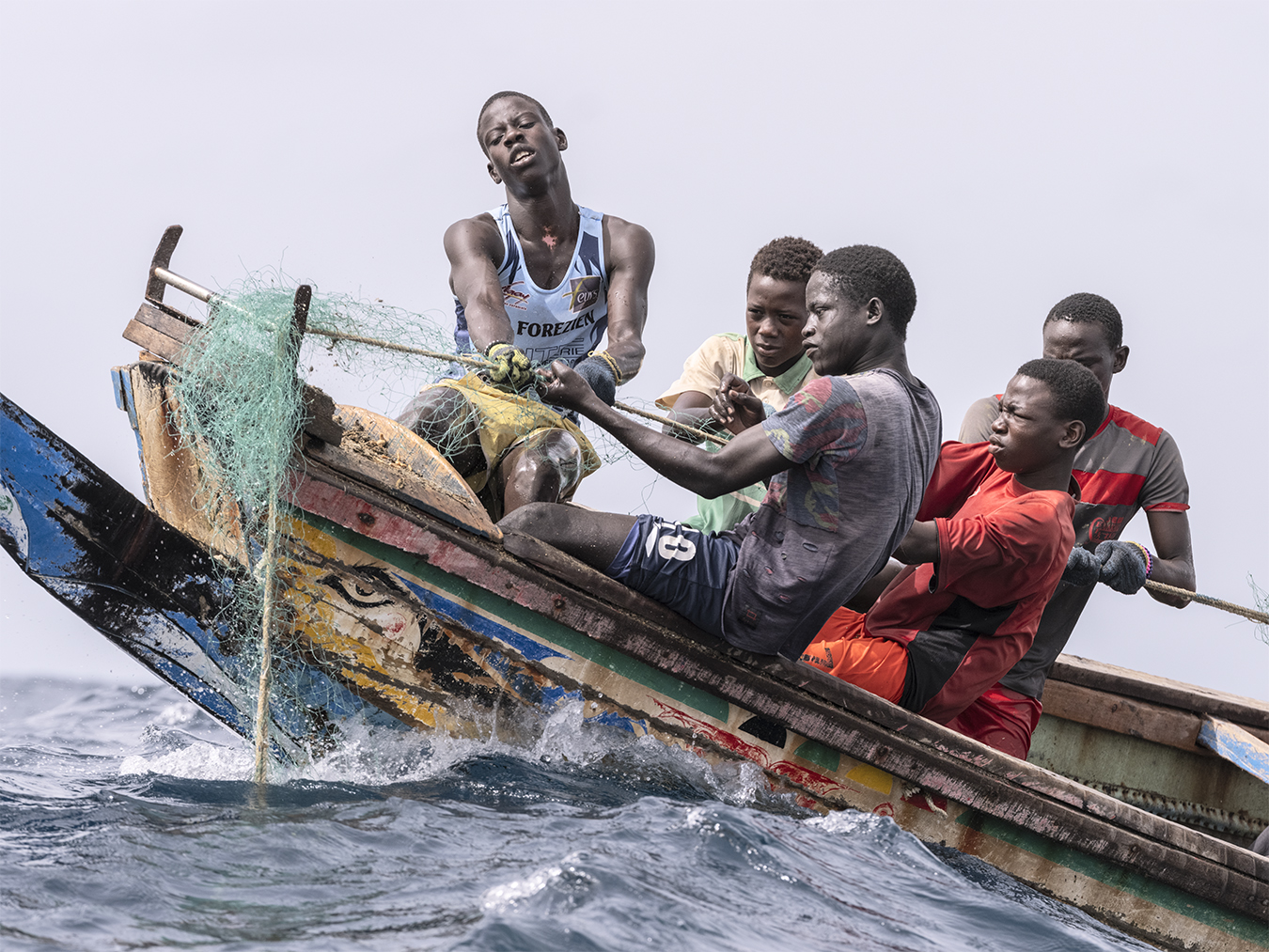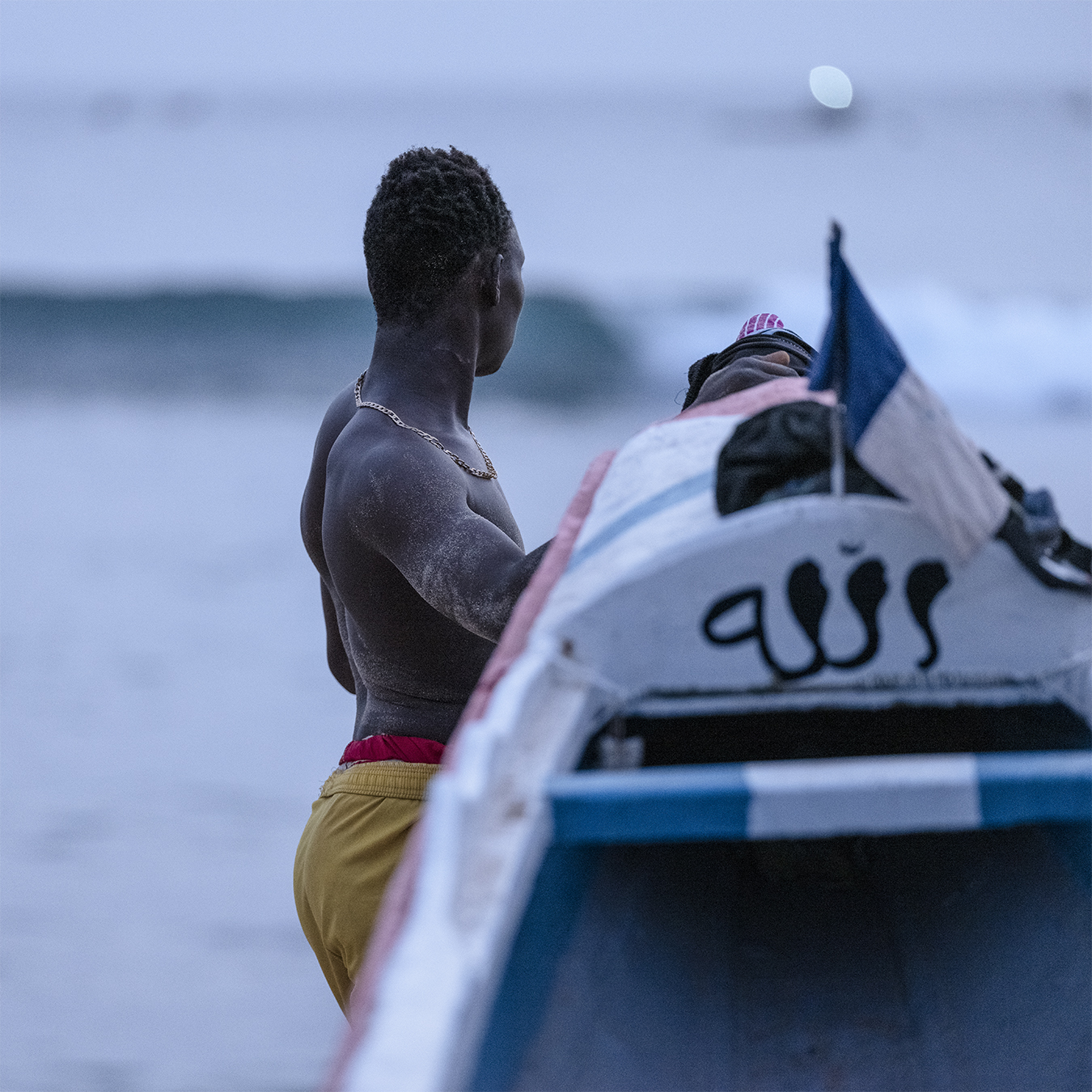Seconded By: Sylvia Laudien-Meo,
Since time immemorial, crews of proud Lebou fishermen, the most reputed fishing community of Senegal, used to return to the shore with their colorful wooden canoes called “pirogues” filled to the brim with fish of all sorts. Fish was sold, fresh or processed, in local markets throughout Senegal.
Accounting for 80% of all fish landings in Senegal, artisanal fishing provided decent income to 70,000 fishermen and around 50,000 people, mostly women, involved in fish trading and artisanal processing activities.
The profusion of marine life in this part of the Atlantic ocean, due to a natural phenomenon called “upwelling”, seemed limitless. Unfortunately, such an abundance of fish is no longer the case. Senegalese fisheries have been decimated by decades of intensive exploitation, driven by the booming global demand for fish and fish products such as fish meal and fish oil. Over time, exports have taken precedence over the supply of the less remunerative domestic market. As a result, what constituted a major and inexpensive source of high-quality food and protein is now increasingly out of reach of local populations, fueling food insecurity and social unrest.
Once abundant, populations of common fish species such as sardinellas and the popular white grouper (“thiof”) are now on the verge of collapse. As a result, Lebou fishermen need to spend more time at sea and venture farther offshore to access a dwindling resource, which makes fishing trips less and less profitable. Some Lebou fishermen set to the high seas with their frail wooden canoes, in search for a few but big catches, such as the increasingly rare giant bluefin tuna or the elusive Atlantic blue marlin.
As fish stocks plummet, competition between Lebou fishermen and industrial trawlers gets fiercer, with heightened risks of collision and violence perpetrated by the crews of trawlers, often with total impunity. This is particularly the case when Lebou fishermen come into contact with foreign trawlers engaged in illegal, unreported, and unregulated fishing.
For many Lebou fishermen, making ends meet has become a daily struggle. Coping strategies include taking children out of school, so that they do some paid work to support their family or help their father on the boat.
No longer able to make a decent living from fishing, a growing number of young Lebou fishermen undertake by sea the perilous and illegal journey to the Canary Islands, some 1,700 kilometers from the Senegalese coast and the closest entry point to the European Union. This migration route, the deadliest in the world, claimed more than 6,000 victims in 2023.
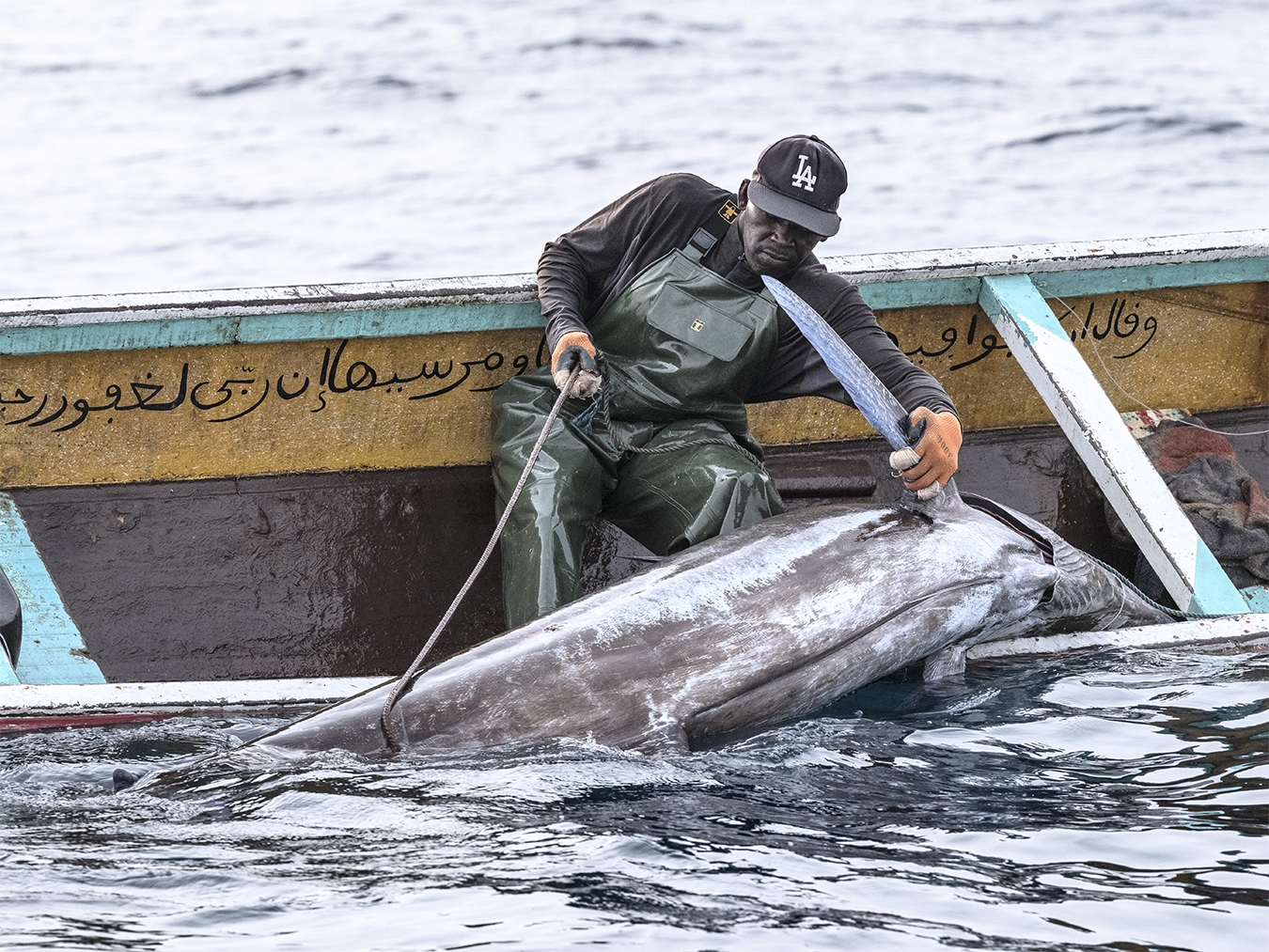
A once abundant sea
For centuries, the coastal waters of Senegal have teemed with life of all sorts and sizes. Lebou fishermen enjoyed decent livelihoods. The sea was a source of abundance and ensured a large part of Senegal’s food security
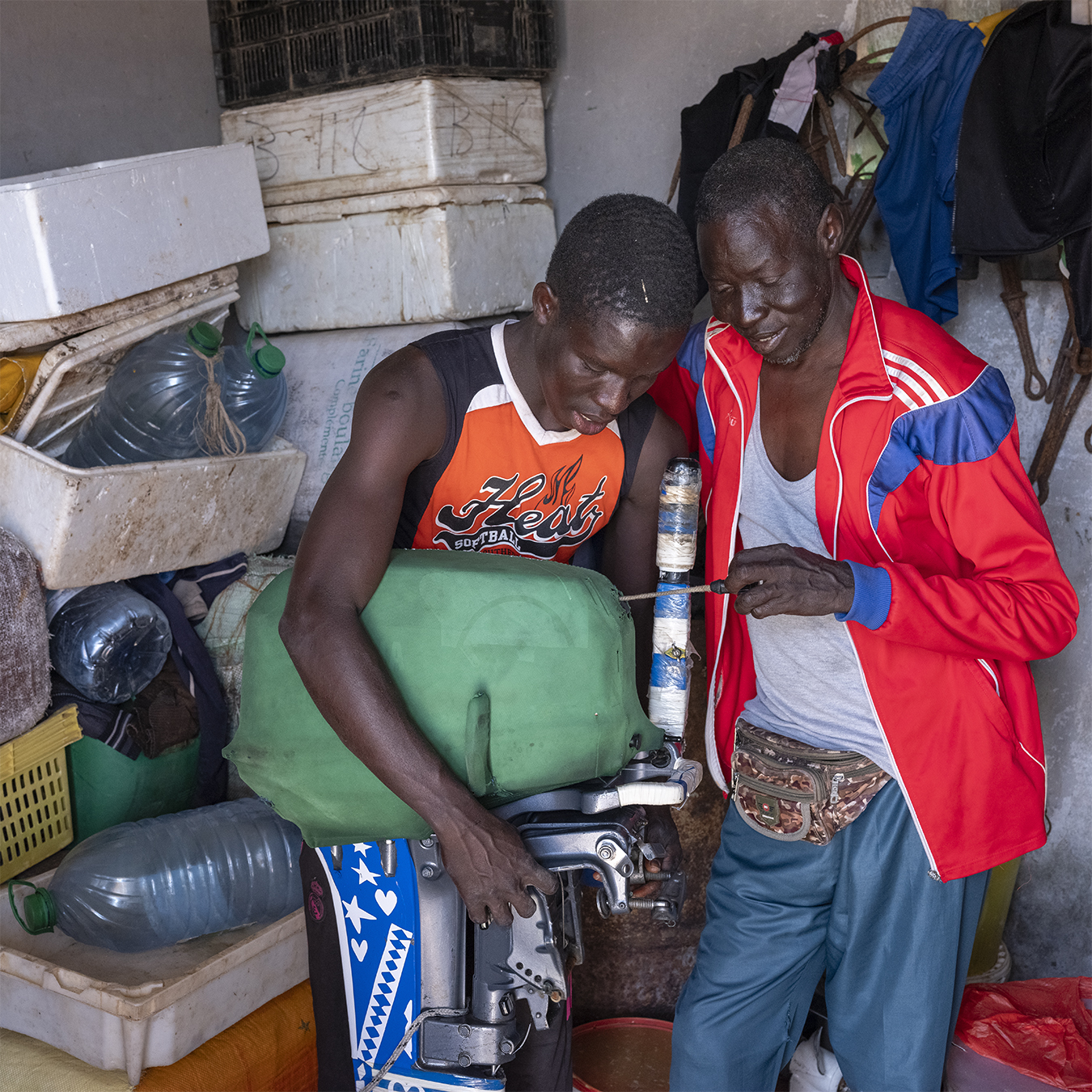
Father and son
Lébou fisherman Issa Diagne teaches his son how to operate and maintain an outboard motor. For centuries, navigation and fishing skills were transmitted from one generation to the next
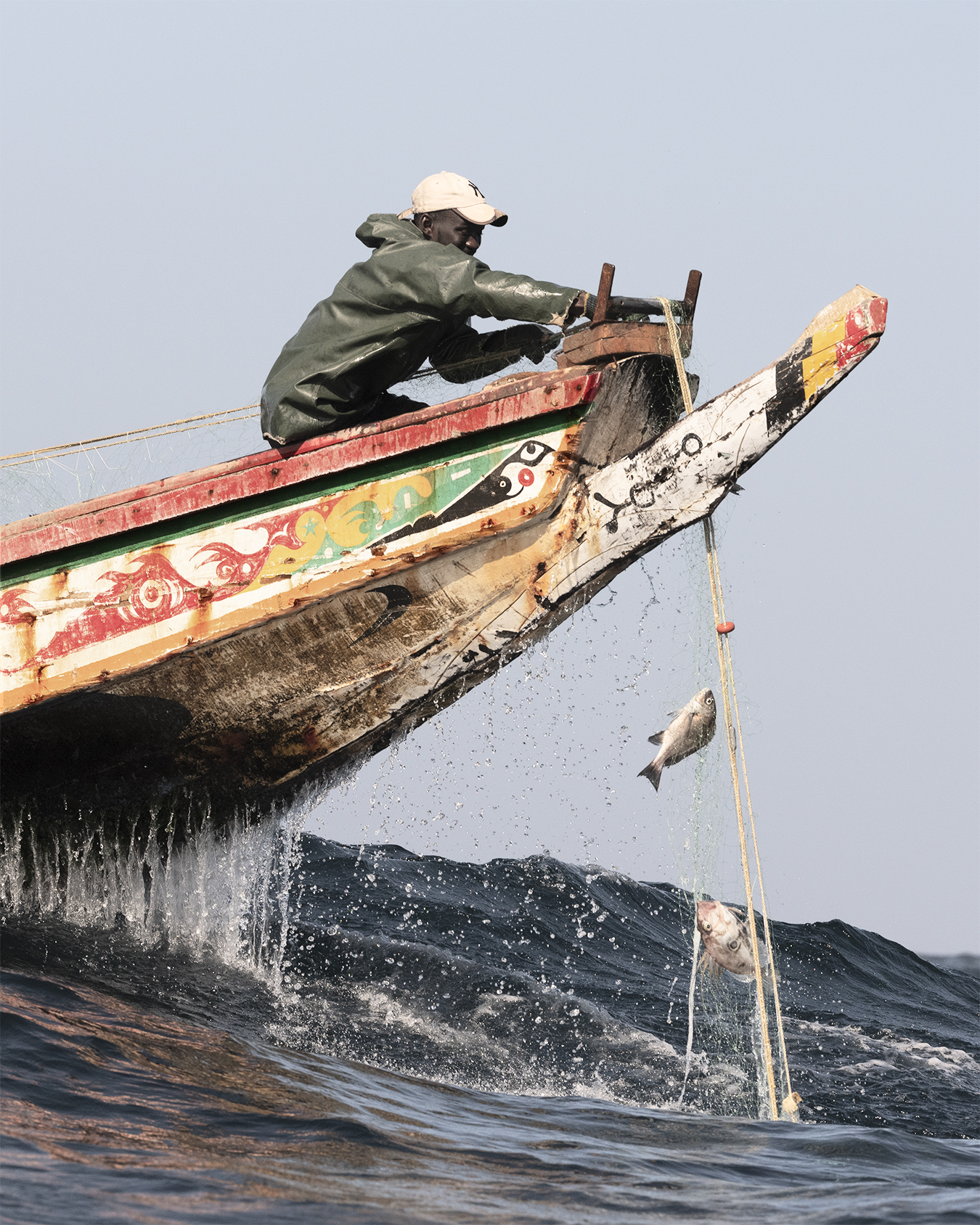
The dying sea
The profusion of marine life in this part of the Atlantic ocean seemed limitless. Unfortunately, today, fishing nets barely bring back enough fish to feed Lebou households. Fish stocks have dramatically plummeted, due to decades of over-fishing
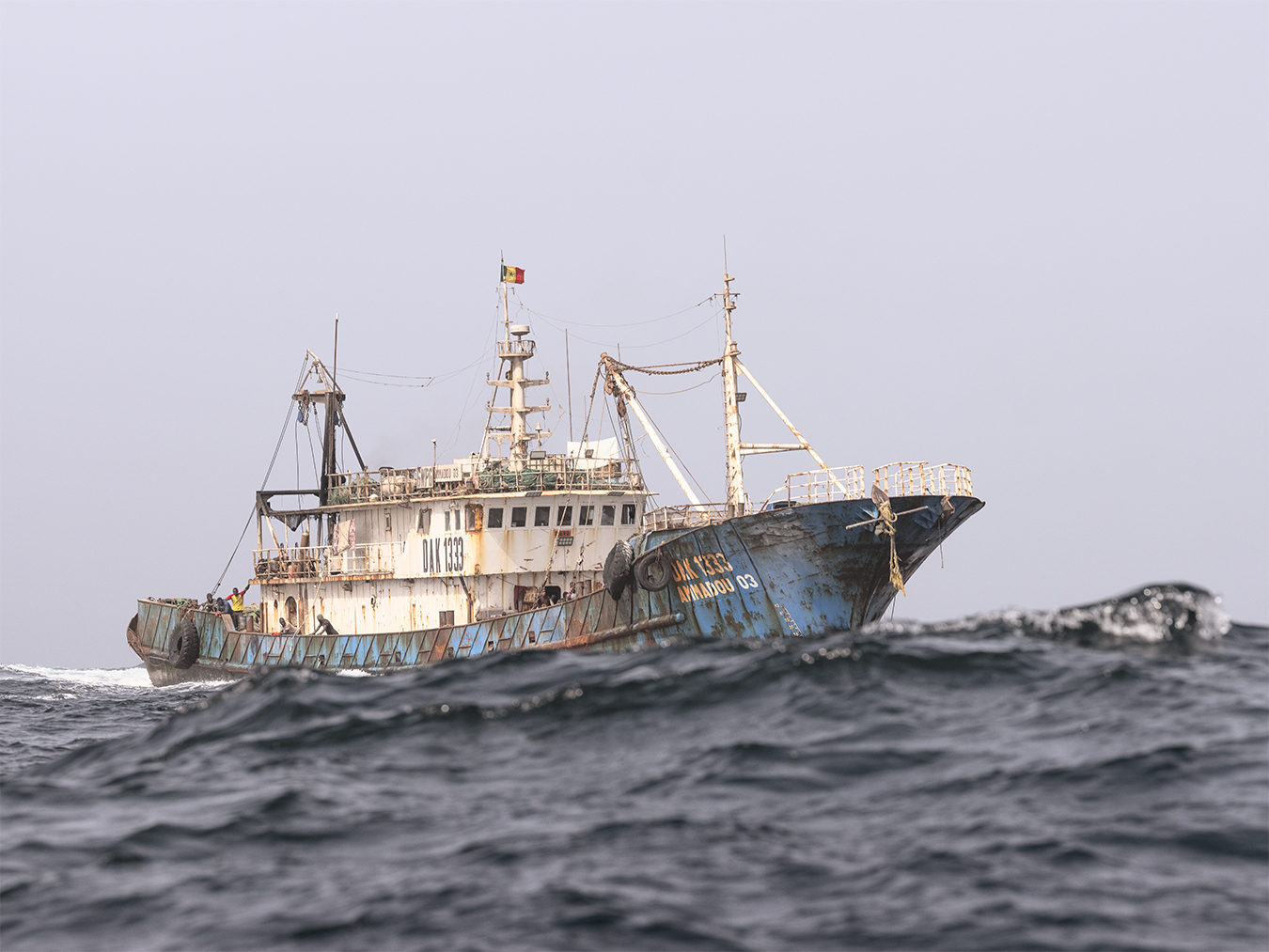
National and foreign trawlers feed an ever growing fish export market
Global demand for fish products, including fish meal and fish oil, has triggered a booming fish export market and attracted many foreign trawlers. Trawlers belonging to distant water fishing nations are regularly spotted engaged in illegal, unreported, and unregulated fishing
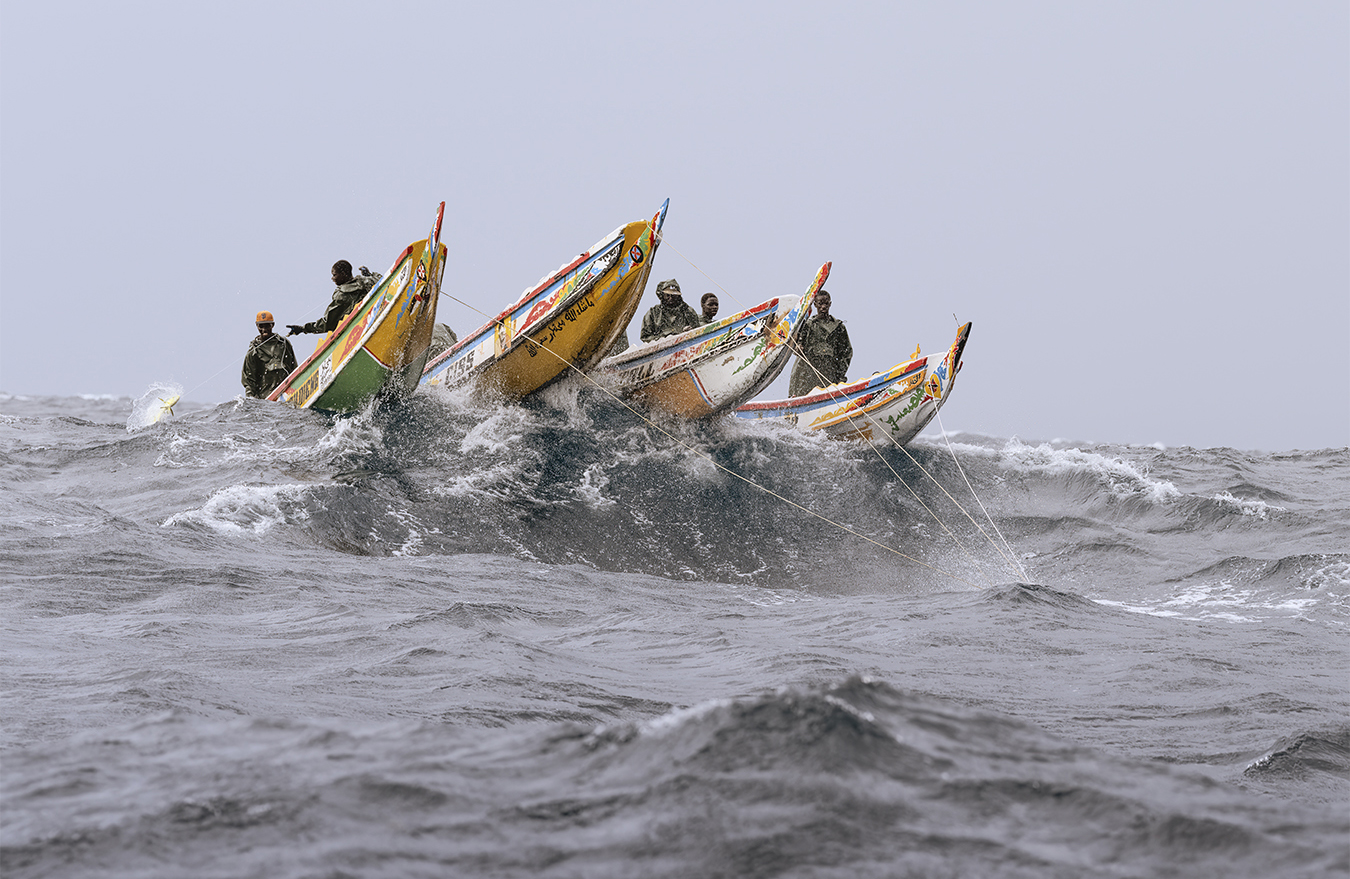
Going to the extreme
In search of fish to catch, Lebou fishermen sail ever further offshore with their frail wooden canoes, often facing rough and dangerous conditions. More often than not, they do not catch enough fish to cover their operating costs
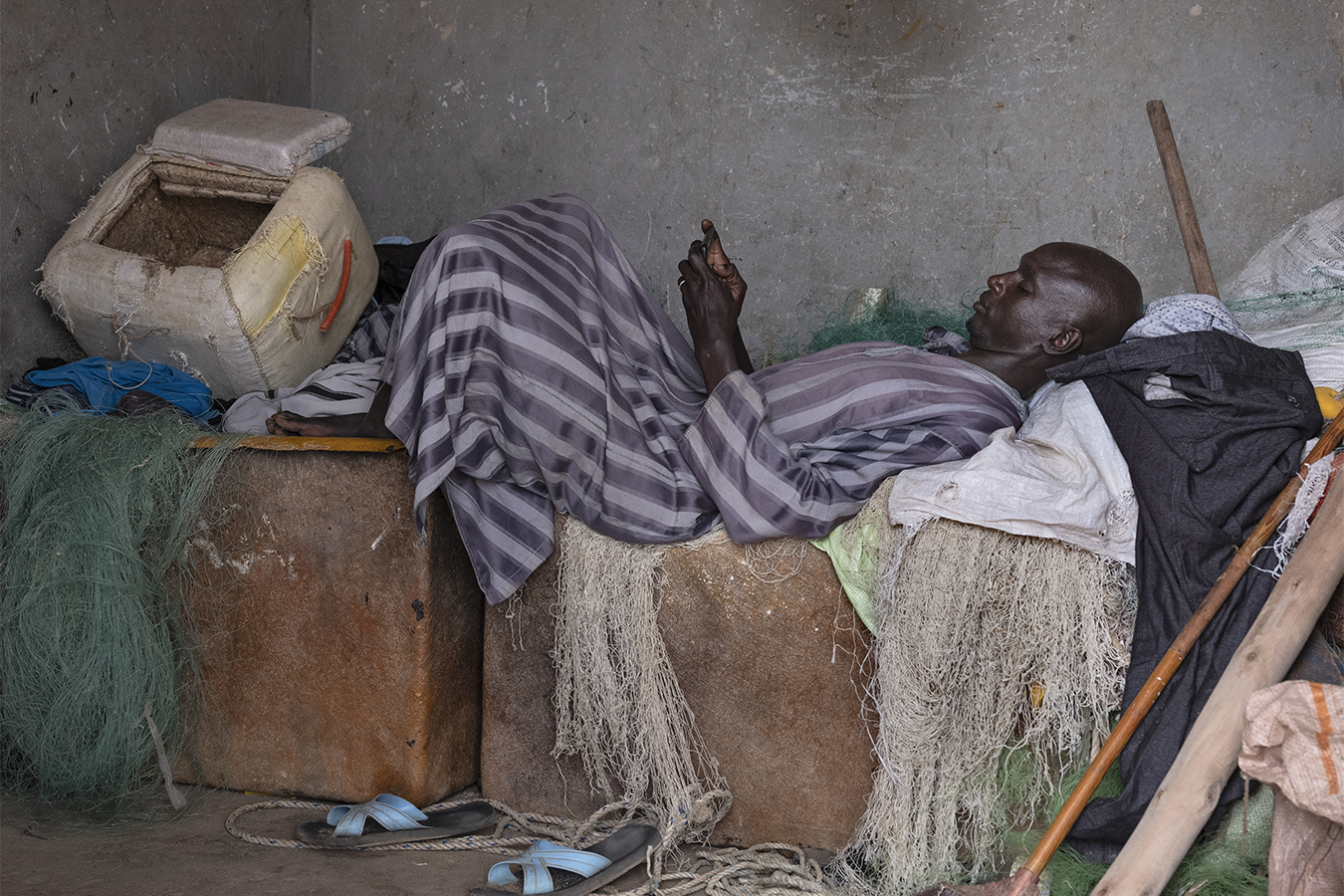
The poverty trap
With their income declining at an alarming rate, Lebou fishermen like Chiekhou Oumar Dieye can no longer save money and must go into debt. A cessation of activity due to illness often throws them into poverty
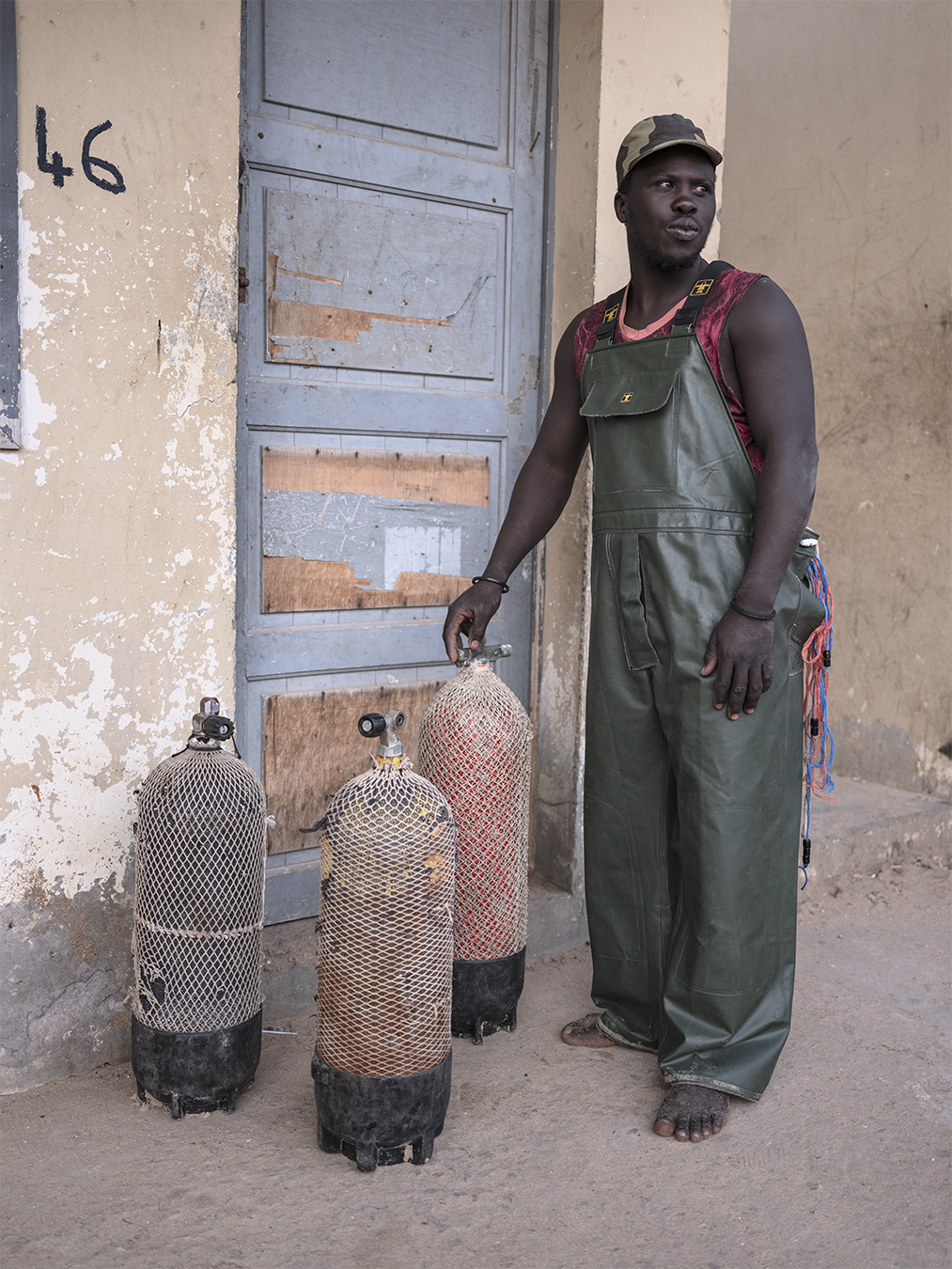
Dangerous dives
To supplement their income, young Lebou fishermen like Ismaila Sarr practice scuba diving to catch “thiof”, a very popular fish in Senegal. But diving accidents are common due to faulty equipment and lack of compliance with safety procedures
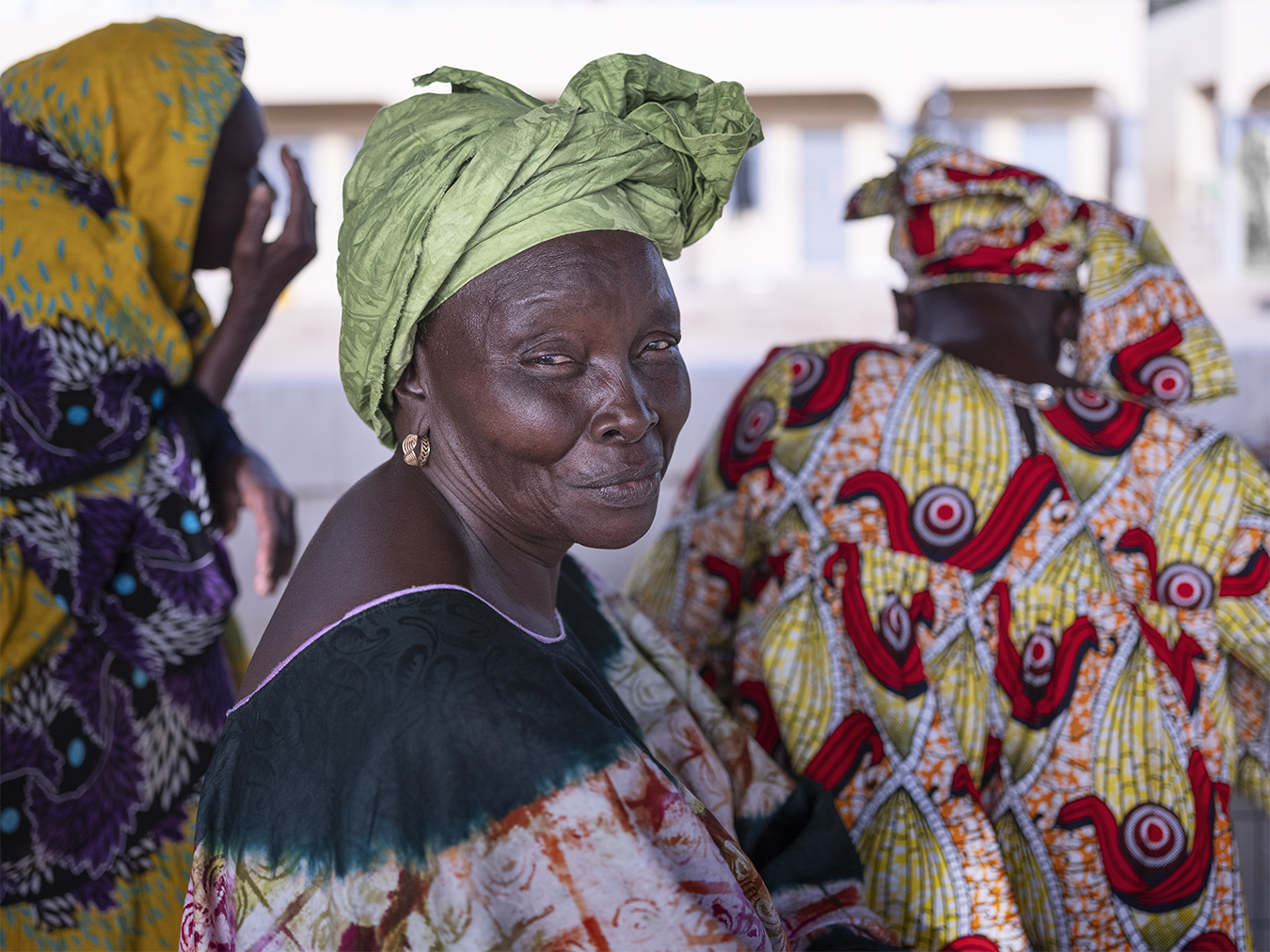
Unfair competition
Small-scale fish traders like Rokhaya Diagne no longer have the sufficient financial base to source small pelagic fish, whose prices have soared due to tough competition from wholesalers, exporters of frozen products and fishmeal factories

